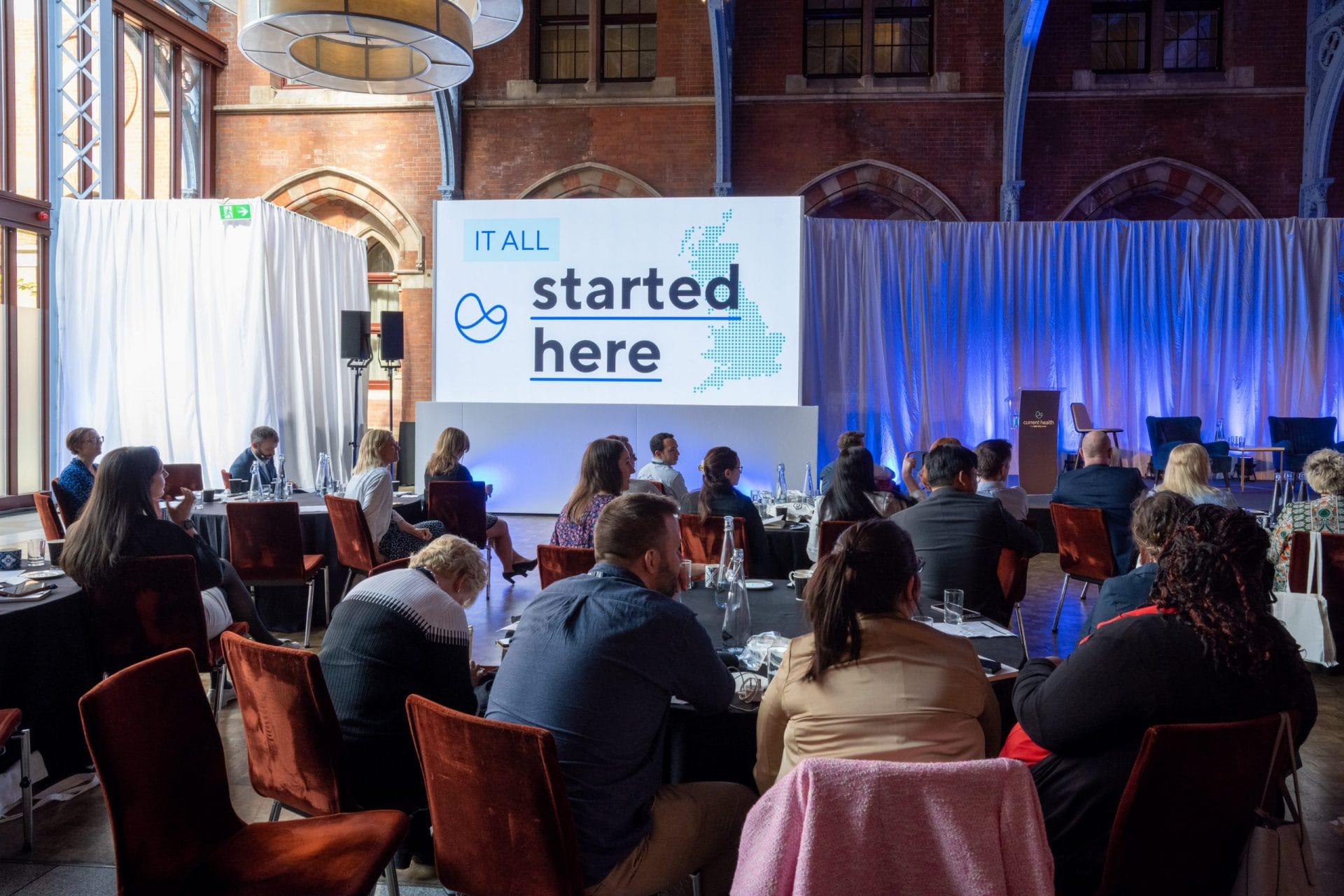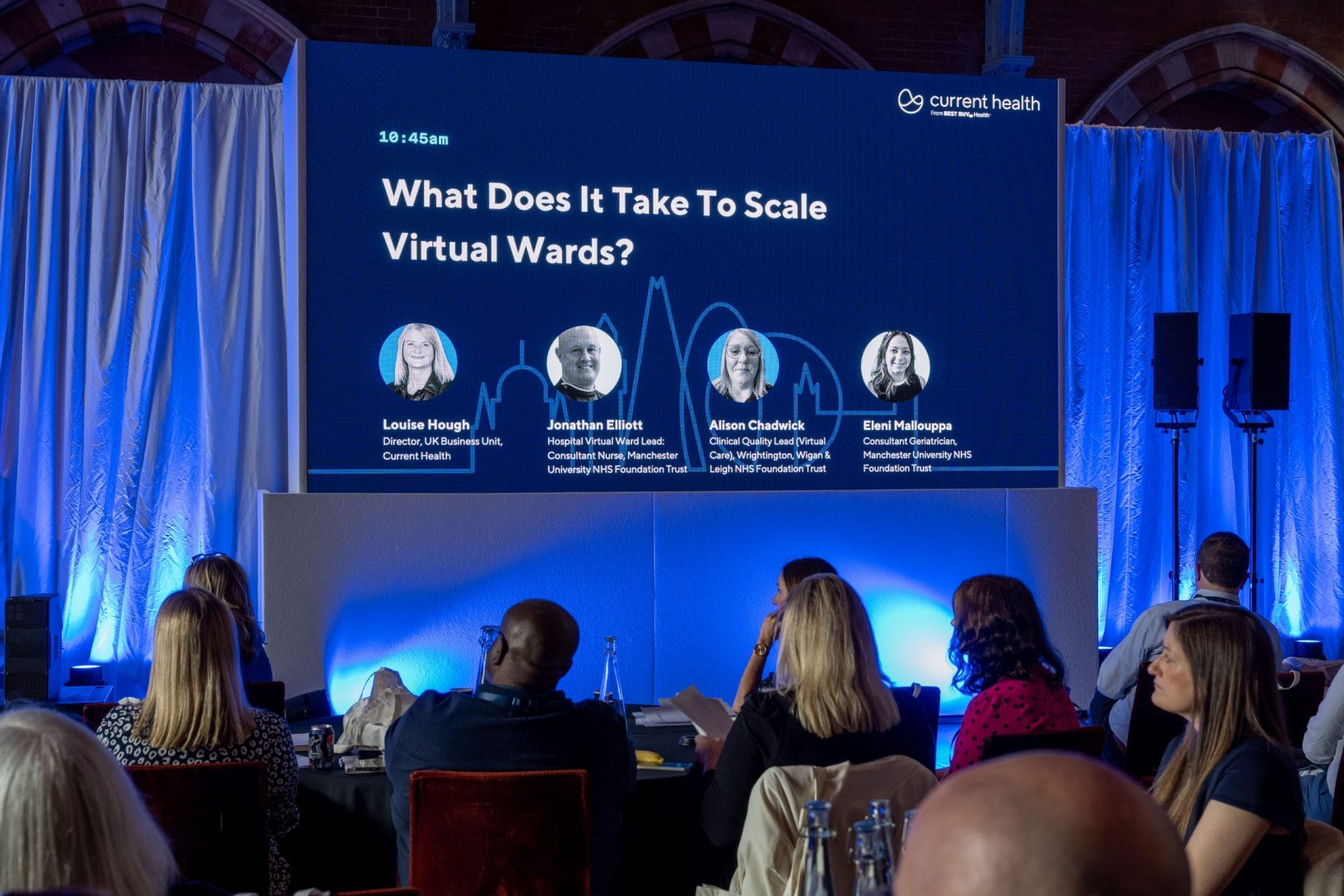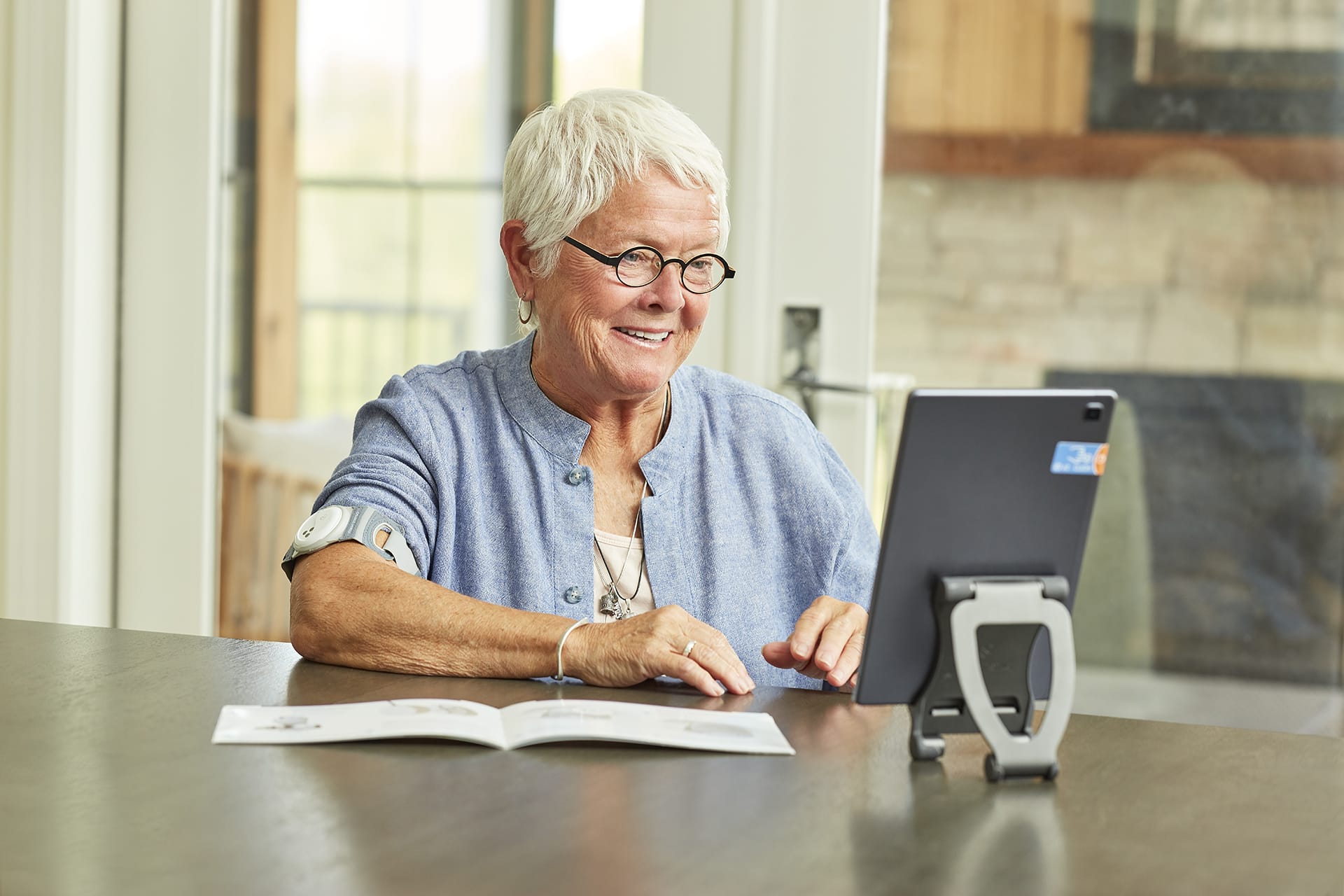Highlights from the 2023 Customer Summit in London
In 2017, Current Health co-founders signed their first contract for a pilot programme with Dartford and Gravesham NHS Trust. Gathering in London six years later with virtual ward leaders representing more than 32 Trusts was a significant milestone for our team and for the progress of moving more healthcare services into the home.

As he welcomed customers to the event, Christopher McGhee emphasized that, “NHS Trusts have shown they can lead the charge in innovating healthcare delivery and leveraging technology to deliver better patient experiences at scale.” Throughout the day, the people who have championed that innovation shared the successes and challenges they’ve encountered in doing so.
Virtual Wards Evolve from Pandemic Necessity to Strategic Priority
It’s safe to say that technology-enabled virtual wards are no longer experimental. The growing body of research (with contributions from many who were in the room) clearly demonstrates the multi-dimensional value of these programmes. Opening inpatient bed days, enabling more holistic care, and improving clinical outcomes topped the lists that presenters and panelists repeatedly shared during the day.
With the inclusion of “taking care of more patients at home” as a stated goal of NHS England, and the national objective of 25,000 virtual ward beds by the end of 2023, virtual wards have officially reached the status of being strategic priorities. But as programme leaders know, that status doesn’t make success or scaling easy. A case study of the ICS-wide North West London Virtual Hospital emphasised the importance of determining governance, defining programme structure, and navigating inter-trust politics, which all impact resourcing and protocols.
Results are Strong, but Ongoing Challenges Remain for Virtual Wards
The challenges leaders are facing are significant, but trading lessons learned is key for reaching the next stage of success. As Jonathan Elliott, Consultant Nurse at Manchester Royal Infirmary, said during the panel focused on growing programmes, “With each other, we have a community of practice to build on.”
The challenges leaders discussed across sessions included expanding clinical pathways, identifying more patients for virtual care, and securing staff resources to grow the programme. Leaders who are earlier in their virtual ward journey found benefit in learning from those who are further along. Karl Guttormsen, Acute Medicine Interim Virtual Ward Lead at North Manchester, said, “Being here is giving me new ideas for how we can think more creatively as we add new roles and grow our program.” The subject of proving programme value came up repeatedly, along with the need to make virtual wards “business as usual” within the services a Trust provides. Multiple speakers emphasised the importance of collecting data early and often in support of this goal. In a presentation about evaluating programme effectiveness and value, Dr. Juliana Pugmire, Senior Research Scientist at Current Health, advised leaders to focus on adherence, outcomes, and cost.

Proving Impact and Leading through Change: Advice from Dame Barbara Hakin
In the keynote address, Dame Barbara Hakin, former Deputy Chief Executive of NHS England, emphasised the role of digital tools in moving the NHS forward, offered insights on navigating NHS systems and advocating for innovative programmes. Three key pieces of advice she provided were:
- Be clear about the role and benefit of technology in your model and get the tech right
- Focus on change management
- Have a clear vision for how you’re leveraging data and analytics to resource efficiently and measure success
See you Next Year!
Thank you to all who joined us! We hope you enjoyed yourself and found it to be both educational and inspiring.

